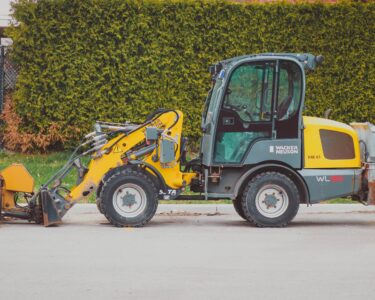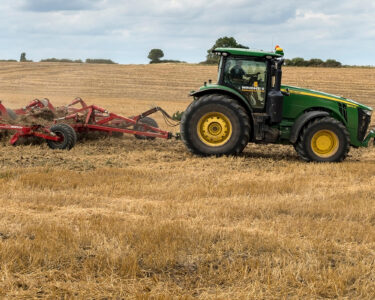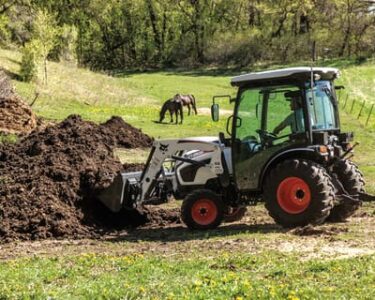Tractors in Construction: How These Workhorses Shape the Industry
Tractors are renowned for their pivotal role in agriculture, but their utility extends far beyond the farm gates. In this article, we’ll delve into the world of tractors in construction and excavation projects, showcasing their versatility and the significant impact they have on shaping the construction industry.
The Versatility of Tractors
1. Earthmoving
Tractors equipped with front-end loaders or bulldozer blades are essential for earthmoving tasks in construction. They can move large quantities of soil, sand, gravel, and debris efficiently, making them invaluable for site preparation, excavation, and foundation work.
Benefits:
- Efficiency: Tractors expedite earthmoving tasks, reducing manual labor and project timelines.
- Versatility: They can handle various materials, from fine-grained soil to heavy rocks.
- Cost Savings: Tractors are cost-effective alternatives to specialized construction equipment.
2. Grading and Leveling
Tractors with grading and leveling attachments are used to create even and level surfaces. They are crucial for road construction, parking lots, and building foundations, ensuring proper drainage and a smooth finish.
Benefits:
- Precision: Tractors can achieve precise grading and leveling, reducing the need for corrections.
- Speed: They complete grading tasks quickly, accelerating project progress.
- Consistency: Tractors ensure uniform surface quality across construction projects.
3. Material Handling
Tractors with forklift or telehandler attachments play a significant role in material handling on construction sites. They can lift and transport heavy construction materials, equipment, and palletized goods.
Benefits:
- Efficiency: Tractors streamline material handling, reducing manual labor and potential injuries.
- Flexibility: They are adaptable to various material types and sizes.
- Accessibility: Tractors can reach tight or elevated spaces, enhancing accessibility.
4. Site Cleanup
After construction or demolition, tractors equipped with front-end loaders or buckets are instrumental in site cleanup. They collect and remove debris, ensuring a safe and organized workspace.
Benefits:
- Quick Cleanup: Tractors expedite cleanup operations, reducing downtime.
- Safety: They assist in removing hazardous materials and maintaining a safe environment.
- Cost-Efficiency: Tractors minimize the need for manual debris removal teams.
Innovative Advancements
Tractor technology has seen significant advancements in recent years, further enhancing their performance in construction:
1. GPS Guidance
Many tractors now feature GPS guidance systems that enable precise positioning and grading. This technology ensures accuracy and minimizes errors in construction projects.
2. Telematics
Telematics systems provide real-time data on tractor performance and maintenance needs, allowing construction companies to optimize fleet management and reduce downtime.
3. Attachment Variability
Tractors can be fitted with a wide range of attachments, making them adaptable to specific construction tasks. From augers and trenchers to hydraulic breakers, the versatility of tractor attachments is continually expanding.
Conclusion
Tractors, once primarily associated with agriculture, have carved out an essential role in the construction and excavation industry. Their versatility, efficiency, and adaptability make them indispensable for a wide range of tasks, from earthmoving and grading to material handling and site cleanup. With ongoing technological advancements, tractors continue to shape and enhance the construction industry, making projects more efficient and cost-effective.
FAQs
Q1. Are tractors in construction as powerful as dedicated construction equipment?
A1. While tractors may not always match the raw power of specialized construction equipment, they are highly versatile and can efficiently perform many construction tasks. They offer a cost-effective alternative for various projects.
Q2. Can tractors be used for demolition work on construction sites?
A2. Tractors are primarily used for tasks like earthmoving, grading, and material handling. Demolition typically requires specialized equipment like excavators and wrecking balls.
Q3. What safety precautions should be taken when using tractors in construction?
A3. Safety is paramount when using tractors in construction. Operators should be trained and certified, and proper safety gear should be worn. Tractors should undergo regular maintenance to ensure safe operation.
Q4. Are there environmental benefits to using tractors in construction?
A4. Tractors equipped with modern engines and emissions control systems can be more environmentally friendly than older construction equipment. They can reduce emissions and improve fuel efficiency, contributing to a cleaner construction industry.



